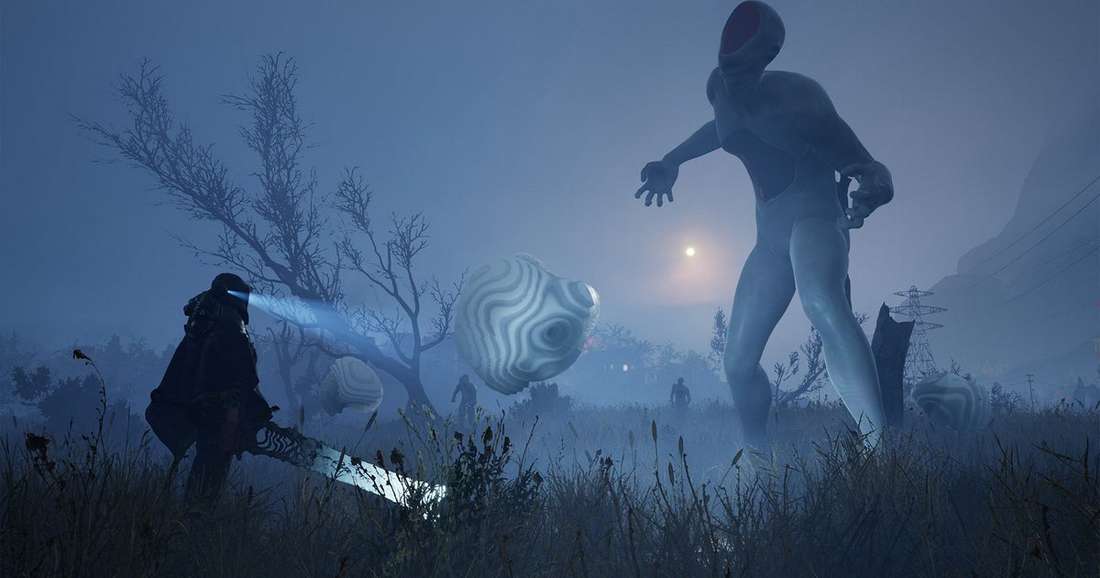Indie Game Developers React: ‘Hell Is Us’ Lead Calls ‘Silksong’ Shadow Drop ‘A Little Callous’ Amidst Crowded Release Window
Popular Now
 Toca Boca World
Toca Boca World
 Schedule I
Schedule I
 Fortnite
Fortnite
 Garena Free Fire: Kalahari
Garena Free Fire: Kalahari
 Minecraft
Minecraft
 PUBG Mobile
PUBG Mobile
 Brawl Stars
Brawl Stars
 R.E.P.O
R.E.P.O
 Roblox
Roblox
 Sonic the Hedgehog™ Classic
Sonic the Hedgehog™ Classic  The highly-anticipated release of Hollow Knight: Silksong, the sequel to the beloved Metroidvania title, did more than just delight fans—it sent ripples of concern and frustration through the indie game development community. In a recent, widely-discussed interview, Jonathan Jacques-Belletête, the Creative Director of Hell is Us, an action-adventure game that launched on the exact same day, voiced his candid opinion on the sudden, short-notice nature of Team Cherry’s announcement, describing the move as “a little callous.”
The highly-anticipated release of Hollow Knight: Silksong, the sequel to the beloved Metroidvania title, did more than just delight fans—it sent ripples of concern and frustration through the indie game development community. In a recent, widely-discussed interview, Jonathan Jacques-Belletête, the Creative Director of Hell is Us, an action-adventure game that launched on the exact same day, voiced his candid opinion on the sudden, short-notice nature of Team Cherry’s announcement, describing the move as “a little callous.”
The September 4, 2025, release date for Silksong was unveiled just two weeks prior via an unexpected trailer, a ‘shadow drop’ that immediately overshadowed numerous other titles with established, long-planned marketing campaigns. This lack of lead time is at the heart of the ongoing discussion about release window strategy and market saturation in the modern video game landscape.
 The Impact of a Two-Week Notice on Marketing and Sales
The Impact of a Two-Week Notice on Marketing and Sales
Jacques-Belletête, whose game Hell is Us was a significant launch for publisher Nacon and developer Rogue Factor, highlighted the logistical and financial complications of a last-minute clash. The creative director, on the ‘Friends Per Second’ podcast, acknowledged Team Cherry’s right to choose their release strategy, but stressed that for a game often dubbed the “GTA 6 of indie“—a title signifying immense commercial anticipation and guaranteed media attention—such a surprise announcement was a blow to smaller studios.
- Marketing Disruption: Established marketing schedules, media outreach, and community engagement plans for games like Hell is Us were instantly compromised. Weeks and months of effort in securing press coverage and building pre-launch momentum were severely curtailed by the Silksong news cycle.
- Pre-Order Challenges: Moving the release date of a game that has already commenced pre-orders is a significant operational burden. Jacques-Belletête noted that a delay would have involved the “real pain in the ass” of processing widespread customer refunds, an obstacle that strongly influenced their decision to stick with the original September 4th date.
- Sales Volatility: The primary concern for any developer is market visibility. Launching alongside a titan like Hollow Knight: Silksong inevitably diverts player attention and, crucially, sales revenue, potentially leading to a lower return on investment (ROI) for the competing titles. The impact on day-one and week-one sales figures, often critical for generating positive buzz and momentum, is palpable.
Indie Market Saturation and the Courtesy of Collaboration
The conversation goes beyond a single release clash; it touches on the intense competition within the PC Gaming and Console Gaming spheres. The idea of “shadow dropping” a colossal title, even if legally permissible, raises questions about industry courtesy and mutual respect, especially in a period where the release calendar is perpetually packed.
Strong independent developers often rely on maximizing their unique window of opportunity. Jacques-Belletête’s perspective is that, for studios with the massive platform and cultural footprint of Team Cherry, a longer lead time for their high CPC keywords game would have given other studios a fair chance to adjust their monetization strategy and timing. Interestingly, while describing the move as “callous,” he also expressed happiness that Rogue Factor chose to brave the competition and did not succumb to the pressure of delaying their game, which has been reviewed as a deep, narrative-driven action-adventure game with a focus on exploration and cryptic puzzles.
 Hell is Us: A Dark Horse in a Crowded Race (Review Update)
Hell is Us: A Dark Horse in a Crowded Race (Review Update)
The simultaneous launch has inadvertently brought more attention to Hell is Us, a title that blends intense combat with a unique approach to exploration—eschewing in-game maps and waypoints to foster true player immersion. Its dark, war-torn setting and supernatural elements position it as a distinct entry in the modern soulslike-adjacent genre.
Initial game reviews and player feedback for Hell is Us have been mixed, praising its ambitious world design, deep atmosphere, and hands-off approach to questing, but noting that the combat system can feel unrefined. It offers a premium gaming experience focusing on a challenging, non-linear narrative, targeting a specific niche of players seeking a demanding, atmospheric adventure.
The Takeaway: Balancing Hype with Industry Health
The ‘Silksong’ vs. ‘Hell is Us’ scenario serves as a recent, powerful case study in the dynamics of the video game industry. While the immediate excitement for a title like Silksong is undeniable and justifies the high-value keyword searches it generates, the ethical and financial consequences for smaller, competing studios remain a point of friction. Developers and publishers are continually seeking the elusive “safe” release slot, a search that only becomes more difficult as the industry grows and more high-quality independent games vie for a piece of the global gaming market.
Ultimately, this incident underscores the urgent need for more communication and, perhaps, a longer-term view of market scheduling to ensure a sustainable and competitive environment for all developers, from the massive indie hits to the ambitious new contenders.










 The Impact of a Two-Week Notice on Marketing and Sales
The Impact of a Two-Week Notice on Marketing and Sales Hell is Us: A Dark Horse in a Crowded Race (Review Update)
Hell is Us: A Dark Horse in a Crowded Race (Review Update)